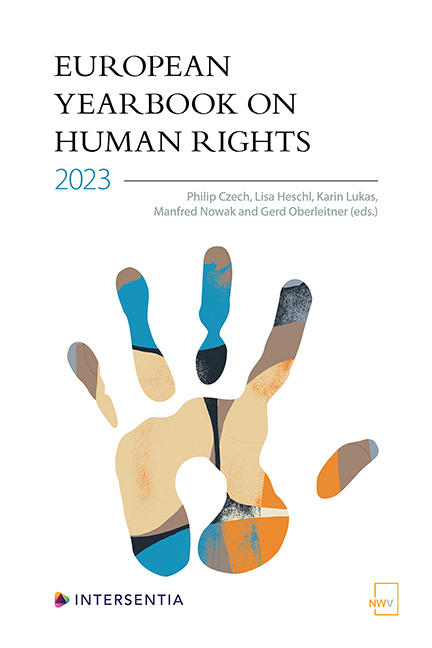Exclusion of Migrants from Political Rights: Legitimate Choice or Unjustifiable Discrimination?
Published online by Cambridge University Press: 04 April 2024
Summary
ABSTRACT
While most human rights are considered ‘everyone’s rights’, political rights function somewhat differently, as they are typically reserved to the nationals of a given state. This begs the question whether the permanent exclusion of noncitizen migrants from political rights is, from a de lege lata perspective, subject to limitations from international (human rights) law. In addition, one may ask whether, from a de lege ferenda perspective, the dichotomic differentiation regarding the personal scope of political rights should be reconsidered. The contribution concludes that international human rights law, as it currently stands, does not, apart from in exceptional constellations, require States to enfranchise non-citizens, even in the case of long-term resident migrants. Nonetheless, the increasing importance of migration movements, and the growing share of long-term resident non-citizens, in many countries, creates tensions with respect to the fundamental democratic principle that governments should derive their powers from the consent of the governed. This calls for an intensified debate on whether the existing human rights law framework should extend political rights to (at least long-term resident) non-citizens. This question must be seen in its interdependence with applicable naturalisation policies and practices. Also the situation in the countries of origin, in terms of non-resident citizen voting rights, should not be ignored.
INTRODUCTION
While most human rights are considered ‘everyone's rights’ (‘no one shall be …’, ‘everyone has …’), it has generally been taken for granted that political rights function somewhat differently. In particular, it is oft en deemed self-evident that such rights are not bestowed on every person, but reserved to the members of the body politic, i.e. the nationals of a given state.
Against this background, the preferred means for migrants to exercise of political rights has been through naturalisation (or, in case of jus soli regimes of nationality, to wait for the next generation to acquire citizen status). In contrast, there are also those who challenge the predominant narrative that it is a legitimate choice for political rights to work completely differently from the bulk of human rights, and that it is, therefore, ‘by design’ that political rights have a different scope ratione personae than civil rights or, for that matter, economic and social rights.
- Type
- Chapter
- Information
- European Yearbook on Human Rights 2023 , pp. 507 - 534Publisher: IntersentiaPrint publication year: 2023



